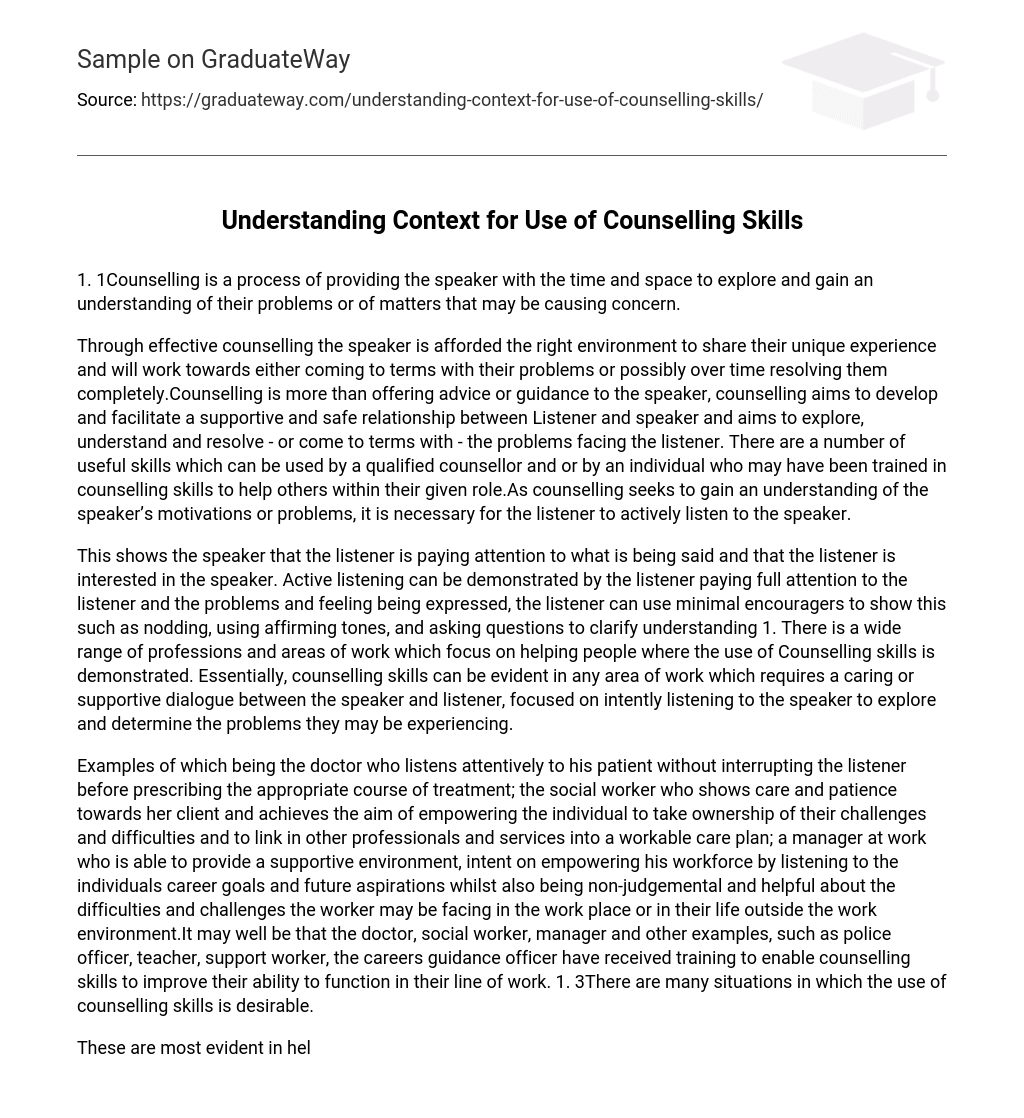Through effective counselling the speaker is afforded the right environment to share their unique experience and will work towards either coming to terms with their problems or possibly over time resolving them completely.Counselling is more than offering advice or guidance to the speaker, counselling aims to develop and facilitate a supportive and safe relationship between Listener and speaker and aims to explore, understand and resolve – or come to terms with – the problems facing the listener. There are a number of useful skills which can be used by a qualified counsellor and or by an individual who may have been trained in counselling skills to help others within their given role.As counselling seeks to gain an understanding of the speaker’s motivations or problems, it is necessary for the listener to actively listen to the speaker.
This shows the speaker that the listener is paying attention to what is being said and that the listener is interested in the speaker. Active listening can be demonstrated by the listener paying full attention to the listener and the problems and feeling being expressed, the listener can use minimal encouragers to show this such as nodding, using affirming tones, and asking questions to clarify understanding 1. There is a wide range of professions and areas of work which focus on helping people where the use of Counselling skills is demonstrated. Essentially, counselling skills can be evident in any area of work which requires a caring or supportive dialogue between the speaker and listener, focused on intently listening to the speaker to explore and determine the problems they may be experiencing.
Examples of which being the doctor who listens attentively to his patient without interrupting the listener before prescribing the appropriate course of treatment; the social worker who shows care and patience towards her client and achieves the aim of empowering the individual to take ownership of their challenges and difficulties and to link in other professionals and services into a workable care plan; a manager at work who is able to provide a supportive environment, intent on empowering his workforce by listening to the individuals career goals and future aspirations whilst also being non-judgemental and helpful about the difficulties and challenges the worker may be facing in the work place or in their life outside the work environment.It may well be that the doctor, social worker, manager and other examples, such as police officer, teacher, support worker, the careers guidance officer have received training to enable counselling skills to improve their ability to function in their line of work. 1. 3There are many situations in which the use of counselling skills is desirable.
These are most evident in helping, caring roles some of which can be specialist requiring specific training or accreditation in the given field. A good example of this being Alcohol and Substance misuse where the drug worker may use counselling skills and apply models or theory such as CBT to help the drug user to identify the triggers of their addictive behaviour.





